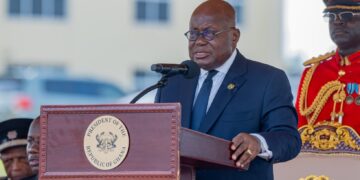The Finance Minister of Ghana, Dr Mohammed Amin Adam, has assured that the government will not burden Ghanaians with additional taxes. Instead, the government plans to collect revenue from those who have not been paying appropriate taxes and those who have been evading taxes.
Dr Amin Adam made this statement during a press briefing on April 13, after Ghana reached a staff-level agreement with the International Monetary Fund (IMF) on the country’s Extended Credit Facility (ECF) arrangement.
Dr Amin Adam noted that the government had suspended the 15% Value Added Tax (VAT) on electricity consumption and the GHS100 annual levy on owners of petrol and diesel vehicles, creating a GHS1.8 billion revenue gap.
He explained that there was an urgent need to increase revenue in line with the implementation of the US$3 billion loan-support program while being mindful not to burden Ghanaian taxpayers.
The government plans to ensure the effective implementation of revenue generation mechanisms announced in both the 2023 and 2024 budgets, which have lacked effective implementation.
Dr Amin Adam stated that the government was pursuing reforms within the tax administration to ensure proper assessments were done, and people made to pay the appropriate taxes to the state in the easiest and fastest ways possible.
The Minister highlighted that aggressive revenue mobilisation alone would not be ideal for the country; therefore, the government would focus on expenditure rationalisation too.
The government has been implementing an arrears-clearing plan to address outstanding payments and onboarding more agencies to the Government Integrated Financial Management Information System (GIFMIS) to stop state institutions from spending beyond their budget as well as any unapproved expenditure.
Dr Amin Adam acknowledged that the reforms implemented have caused difficulties for Ghanaians, individuals, and businesses alike, but he encouraged them to continue to remain patient and sacrificial. Ms Julie Essiam, the Commissioner-General of the Ghana Revenue Authority (GRA), provided further details on the alternative revenue mobilisation efforts to fill in the GHS1.8bn revenue gap created by the suspension of two tax handles.
She said that the Commission had intensified efforts to ensure the effective implementation of compliance measures on the foreign income of resident Ghanaians in the country.
The GRA and the Organisation for Economic Cooperation and Development (OECD) have gone through credible and sustainable structures to generate the GHS1.8bn revenue that the electricity and waste pollution tax was to provide.
Dr Ernest Addison, Governor of the Bank of Ghana (BoG), reiterated the government’s determination to ensure that state institutions work to change the narrative of election expenditure derailing economic progress in the country.
He added that the government and the Central Bank are committed to ensuring that program implementation stays firm.
It is expected that when the IMF Board meets in June this year, it will approve Ghana’s GHS 360m third tranche, following a staff-level agreement reached between Ghanaian authorities and the IMF Mission team.
That would bring the total disbursement for Ghana’s ECF arrangement backed by the country’s Post-COVID-19 Programme for Economic Growth (PC-PEG) to US$1.56bn.
The program aims to restore macroeconomic stability and debt sustainability, build resilience, and lay the foundation for stronger and more inclusive growth. Ghana has already received the sum of US$1.2bn from the first two tranches since the implementation of the US$3bn-three-year IMF loan-support program.














